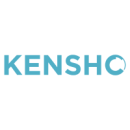Jobs don’t work like they used to. According to recent reports from the Bureau of Labor Statistics, the median employee tenure (a.k.a the number of years a salaried employee sticks around at a company) for workers between 55 and 64 is around 10 years. Meanwhile, the median tenure for workers between 25 and 34 is just 2.8 years.
For better or worse, most of today’s workers don’t expect to be at the same company — or even in the same profession — for more than a few years at a time. Even still, some tech companies go the extra mile to provide professional growth opportunities to members of their teams.
Here’s how three LA companies invest in learning and development — and why they’re committed to seeing employees grow. Read more about their takes on personal and career growth below.

Infrastructure. It’s as important to Procore’s business — cloud-based management software for the construction industry — as it is to their people philosophy. “We believe happy employees make the best and most innovative products,” the company’s senior director of organizational effectiveness, Gregory Gills, told us.
That infrastructure includes a number of work/life considerations, like a comprehensive rewards program, comfortable and stylish workspaces, health and wellness programs, and flexible paid time-off. But it’s also skills-focused, with an in-depth training program, CORE Curriculum and absolute buy-in from Procore’s leadership team. Here’s what Gills had to say on the subject.
How does Procore invest in employees?
One of the most significant investments we make is in our employees’ continued growth through our learning and development program. Our training program is rooted in what we call our CORE Curriculum, where we give employees tools and experiences that foster development in four key areas of growth: 1) construction knowledge, 2) professional development, 3) leadership development, and 4) personal development.
We believe by creating growth opportunities in these areas, employees will gain knowledge and skills that will improve their lives inside and outside of work, as well as the development of skills they can use beyond their careers at Procore.
The investment starts with Procore’s leadership team. We believe a company’s greatest asset is its employees.”
How is learning and development baked into the way Procore runs?
The investment starts with Procore’s leadership team. We believe a company’s greatest asset is its employees, and that learning and development is the lever that will drive success for the company, as well as the individual.
This can be seen in large efforts such as our CORE Days (day-long events dedicated to the four areas of our CORE Curriculum) and in other ways, such as employee-dedicated libraries full of books located in every Procore office.
Why is professional development important in tech specifically?
Recruitment and retention are often referenced by companies as reasons why investment in professional development is important, but it goes beyond that for Procore. We are impacting the way the construction industry works while making the lives of our customers better through our products. The way we invest in our people gives them the drive and engagement to come to work and give their best. We believe this translates into better products, better service and an overall better experience for our customers. This philosophy is central to who Procore is as a company.

Jumpcut is no stranger to the idea that people want to grow. In fact, they founded a business on the very notion, creating educational content about entrepreneurship with courses on everything from building a social media following to branding and intellectual property.
Internally, they follow the same principles. For example, the company’s head of content started out as an intern, and the employee running Jumpcut’s advertising budget was once a customer support representative. Here’s what Jumpcut co-founder Peter Lu told us about the learning-driven company.
How does Jumpcut invest in employees?
Our number one company value here at Jumpcut is ‘help people grow.’ This applies at all levels of the company. Our head of content was an intern four years ago; customer service staff have been promoted to positions like advertising analysts, responsible for a half-million dollar monthly budget. We make sure that people have the opportunity to try new areas of the business they’re passionate about, and in general, our goal is to make sure that every single person who works for us is growing their skills and responsibilities every six months.
Our goal is to make employees feel that they’re in full control of their career and that Jumpcut will be here to support them no matter what they want to do.
We have a career ladder that allows people to constantly move up in responsibility.”
How is learning and development baked into the way Jumpcut runs?
We have a career ladder that allows people to constantly move up in responsibility. Whether it’s building out a recruiting department from scratch or leading a new team that writes scripts for our courses, we believe that when you give your employees room to grow and invest in their education, they become more productive and more satisfied.
We never want anyone to feel like they’ve stagnated here. If they have, we’re doing something wrong.
Why is professional development important in tech specifically?
We’re in an extremely fast-growing industry, and if we want to keep up our company’s growth rate, we need to make the same investment in our employees. At the end of the day, we’re a content company — we produce cinematic videos that people binge watch — even though we’re teaching something. Our future success depends entirely on the creativity and ability of our employees, and the only way we can become a billion dollar business is to make sure we’re completely invested in their growth.

Kensho is about as academic as tech companies come. The AI and machine learning company was founded in Harvard Square and boasts an impressive roster of Ph.Ds and postdocs with ties to some of the nation’s most hallowed halls of higher learning.
We share this all to say: It’s no surprise that learning and development are a big deal at Kensho. We talked to the company’s HR team about their TedTalk-style Lightning Talks, employee-driven learning initiatives and the skill-focused world of tech today.
How does Kensho invest in employees?
Kenshins are learning-motivated and believe in self improvement. To help our team learn and grow, we host a number of regular events to encourage learning and development. Every event is different. MyStory, for example, is an event where employees get together to share about themselves and their lives — everything from baby photos to jokes and family stories.
We also host an event we call Senior Engineers Talks, where engineering team leads are invited to give technical presentations to Kensho employees about their team’s history, current projects and future goals. Every Tuesday we run Tuesday Tutors, a series of presentations organized and run by employees. Educational videos are streamed during lunchtime, and the topics range from Redis to a history of programming languages.
Our last big learning and development programs is Lightning Talks, where employees give five minute talks on a non-technical subject. Past talks include: Clausal Induction: sanskrit grammar, why I started writing with way too many clauses, and my love-hate relationship with the comma splice; Fly Fishing; and What Makes a Barbershop Quartet Good.
From Pride events (and exceptionally cool T-shirts) to implicit bias interviewer training, D&I plays an important role at Kensho.”
How is learning and development baked into the way Kensho runs?
One of the most influential employee-run groups at Kensho is the Diversity & Inclusion (D&I) Committee. Founded in 2017, Kensho’s Diversity & Inclusion Committee is an employee-driven team focused on making Kensho a welcoming, affirming workplace. Diverse teams with different perspectives approach problems from new angles and create more innovation.
Outside the office, the committee has sponsored conferences like Grace Hopper and Out 4 Undergrad, and collaborated on events with Girls Who Code. Inside, they’ve hosted speakers and leaders on D&I from other organizations. Not all their events are big: some of their most popular initiatives have included Lightning Talks and the Kensho ‘Day in the Life’ series. From Pride events (and exceptionally cool T-shirts) to implicit bias interviewer training, D&I plays an important role at Kensho.
Why is professional development important in tech specifically?
The short answer is that tech moves really, really fast, and no two roles are quite the same. The algorithms you’re using today might be completely obsolete in a few months. Were you an individual contributor at your last job? Surprise! Now you’re managing a team of eight! What do you mean, Tensorflow updated again and isn’t backward compatible?
Back in 2009, Netflix came out with its culture deck, which (unfortunately) solidified some ideas that had been kicking around Silicon Valley HR offices for a while. Chief among them was the idea that tech employees should not expect job security, but rather career security. Although most companies have thankfully eased back from that philosophy, the onus is still on tech employees to keep their skill sets sharp to maintain career security.




